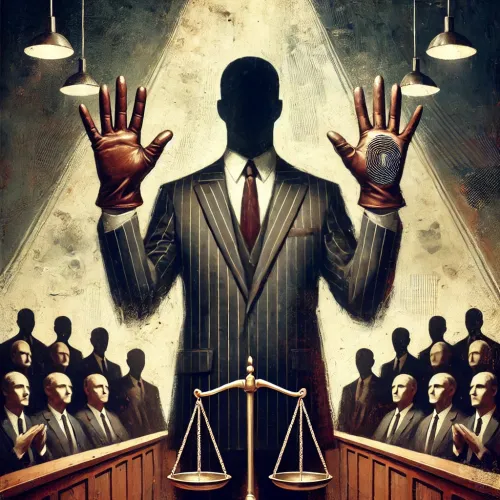Jury nullification occurs when jurors, guided by their moral compass, choose to acquit a defendant despite clear evidence of legal guilt, based on the belief that the law itself is unjust or inappropriately applied. This practice underscores the jury's role as a conduit for community values within the judicial system, ensuring that legal outcomes resonate with societal norms and ethical standards.
Historical Context
The roots of jury nullification in representing community values are evident in several historical instances:
- Colonial America: Juries often refused to enforce British laws perceived as oppressive, such as the Navigation Acts, reflecting colonial resistance to external control.
- Fugitive Slave Act: In the 19th century, Northern juries acquitted individuals charged with harboring escaped slaves, opposing laws that contradicted emerging anti-slavery sentiments.
- Prohibition Era: During the 1920s, many juries acquitted defendants accused of alcohol-related offenses, signaling public disapproval of Prohibition laws.
These examples illustrate how juries have historically acted to align legal proceedings with the prevailing moral and ethical standards of their communities.
Mechanisms of Community Value Representation
Jury nullification facilitates the infusion of community values into the legal system through:
- Moral Judgment: Jurors may perceive certain laws as unjust or improperly applied in specific cases, leading them to render verdicts that align with their ethical beliefs.
- Societal Norms: As representatives of the community, jurors bring diverse perspectives that reflect current societal attitudes, influencing their interpretation and application of the law.
- Resistance to Unjust Laws: By acquitting defendants prosecuted under laws deemed oppressive or outdated, jurors can impede the enforcement of such statutes, prompting legal reforms.
Advantages of Reflecting Community Values
- Democratic Participation: Jury nullification empowers citizens to directly participate in the justice system, ensuring it reflects the populace's evolving moral and ethical standards.
- Check on Legislative Power: It serves as a safeguard against potential legislative overreach, preventing the enforcement of laws that lack public support or are morally contentious.
- Promotion of Justice: By considering the broader context and societal implications, jurors can deliver verdicts that uphold justice beyond the strict letter of the law.
Critiques and Challenges
Despite its potential benefits, jury nullification presents several challenges:
- Inconsistency: Verdicts influenced by personal beliefs can lead to inconsistent legal outcomes, undermining the principle of equal application of the law.
- Lack of Transparency: Since jurors are not required to provide reasons for their decisions, it is difficult to assess whether a verdict was influenced by community values or personal biases.
- Potential for Prejudice: Jurors' decisions may be swayed by prevailing societal prejudices, leading to unjust acquittals or convictions.
Judicial Perspectives
The judiciary's stance on jury nullification is complex. While jurors possess the power to nullify, courts generally do not inform them of this ability. In some instances, judges have actively discouraged or even penalized attempts to educate jurors about nullification. For example, individuals distributing literature on jury nullification near courthouses have faced legal challenges, reflecting the judiciary's apprehension toward the practice.
Contemporary Relevance
In modern times, jury nullification continues to spark debate, particularly in cases involving laws that some perceive as unjust or outdated, such as certain drug offenses. Advocacy groups argue for jurors to be fully informed of their rights, including the power to judge the law itself, asserting that this knowledge is crucial for a just legal system.
Conversely, critics caution that promoting jury nullification could undermine the rule of law and lead to verdicts based on personal prejudices rather than objective legal criteria.
Jury nullification embodies the intersection of law and societal values, allowing jurors to render verdicts that reflect the moral and ethical standards of their communities. While it serves as a mechanism for democratic participation and a check on legislative power, it also introduces complexities related to legal consistency and potential biases. Understanding the role of community values in jury deliberations is essential for appreciating the nuanced dynamics of the justice system and the ongoing discourse surrounding the practice of jury nullification.



